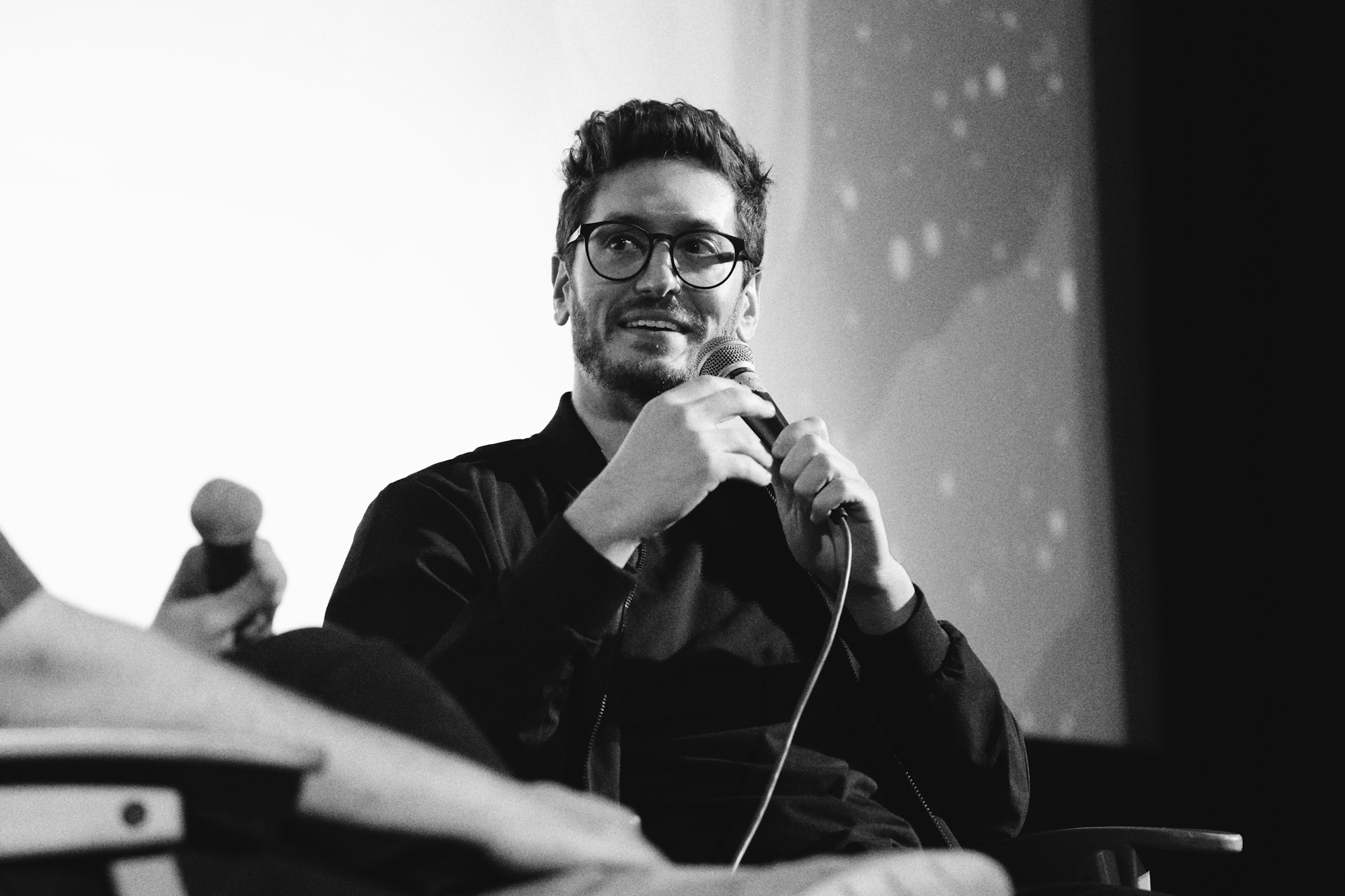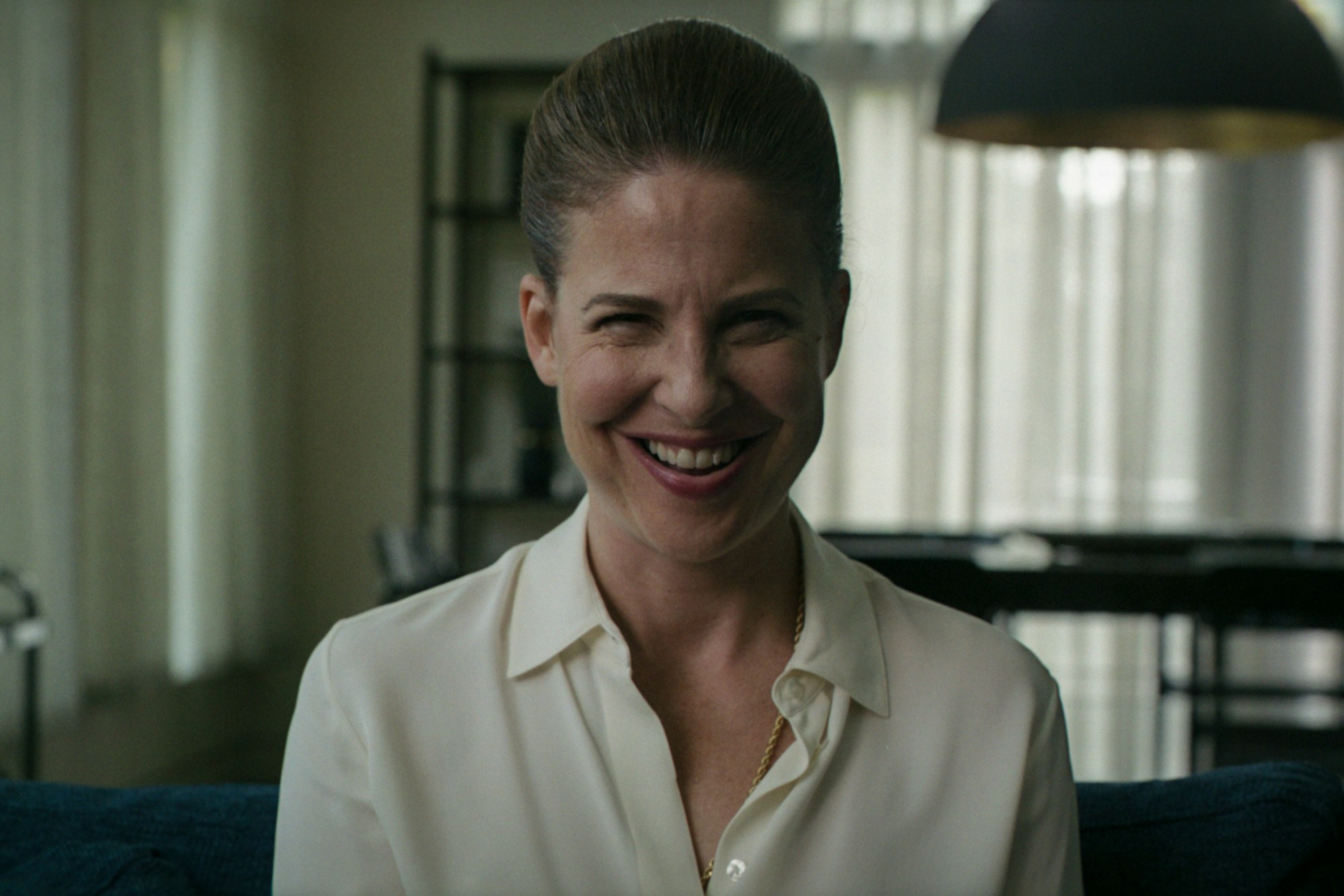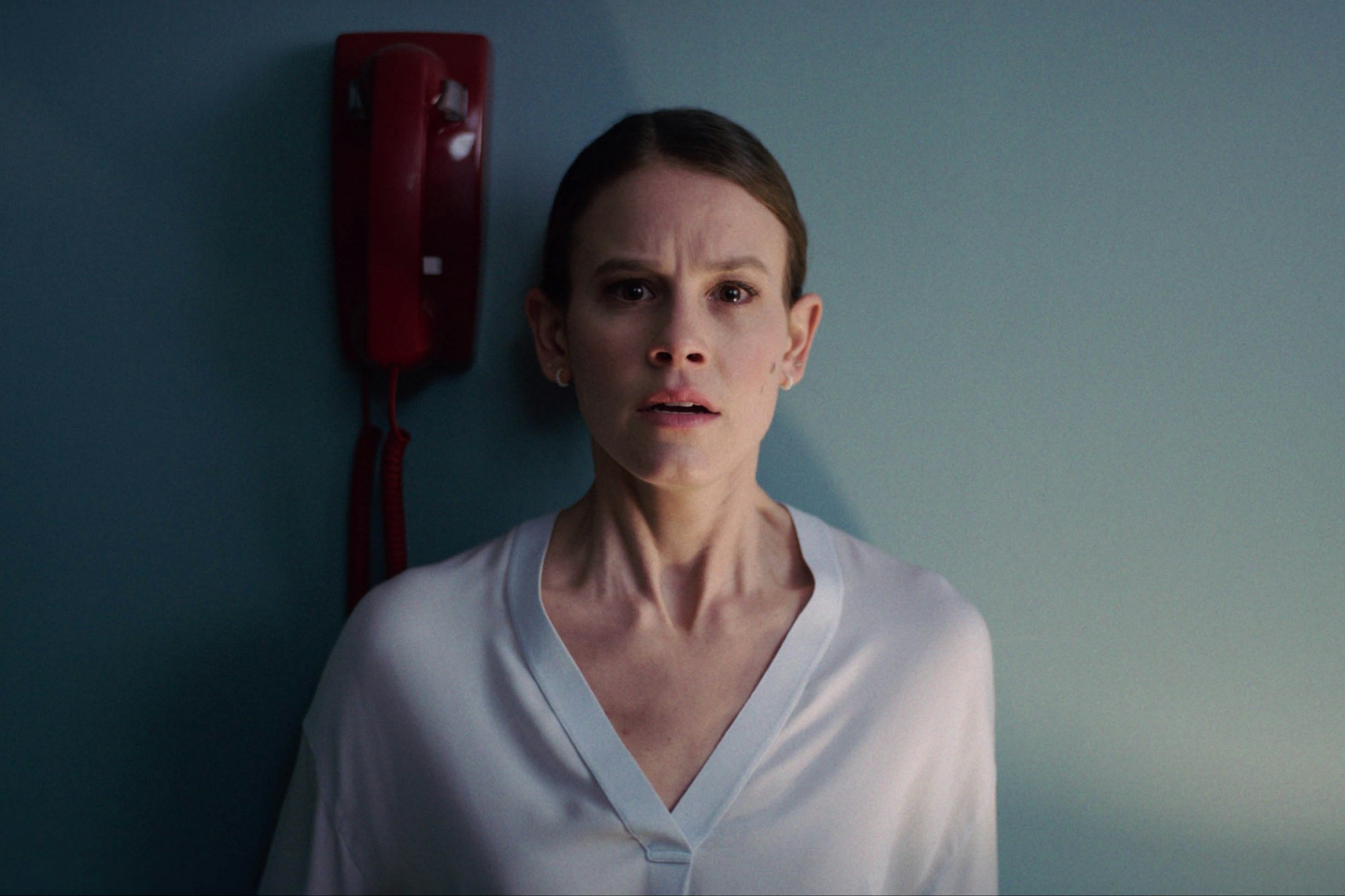Words by Joe Williams
In the past two years, a lot has happened for debut director Parker Finn. With a string of shorts already under his belt, his latest, Laura Hasn’t Slept, began making waves in 2020 - just as the global pandemic began shutting the world down. Whilst most people he knew found their working lives grinding to a halt, Parker was hopping on increasingly frequent Zoom calls with a host of industry figures interested not just in his short film, but in its potential to be adapted for a feature.
Fast forward to now and Parker is in the middle of doing press for Smile, his first feature film – a film that’s being very well received by horror buffs and general audiences alike. It is, as Parker puts it, “nothing short of a dream come true.”
Beaming with excitement, Parker recalls how it was during the editing of Laura Hasn’t Slept that he first thought that there was something about the tone and concept that had longevity. It kept “gnawing at his brain”. The leap from short to feature, he explains, involved an unprecedented and exponential rise in time, hard work and the number of collaborators that are required to finish a theatrical film. Of all the creative collaborators involved, there is one in particular that stands out when watching the film: composer Cristobal Tapia de Veer, whose score instils as much unease and dread as the grim and twisted smiles the film is named after. Parker tells us how he and Cristobal first got in touch, and how they developed the score for one of the year’s biggest horror hits.
When was the first time you came across Cristobal’s work?
The first time I noticed his work was for Utopia. Years ago, that show was not easy to find in the United States, but I had a friend who had it on DVD. I loved the show, which in itself is spectacular - I’m always trying to push it on my friends who are like, “You want me to watch two seasons of a cancelled British show?” It’s worth it, I’m telling you! One of the things that struck me right away when watching the show was the music. It didn’t sound like anything I’d ever heard before. It wormed its way into my brain and I couldn’t stop thinking about the music. I got my hands on it and was constantly listening to it. Once I became aware of his work, I started following his career, he’d done all this very cool stuff - The Girl With All The Gifts, the show National Treasure, some Black Mirror - and when I was writing the script for Smile, I had been listening to what he had done for The Third Day. I had been listening to a bunch of stuff, but The Third Day was on heavy repeat.
One of the things that struck me right away when watching Utopia was Cristobal's music. It didn’t sound like anything I’d ever heard before.
When Smile got greenlit, we had the opportunity to start talking about who we were going to send the script to, as far as other collaborators were concerned, and when I met with Paramount’s music department, they had a few composers in mind. I said “Listen, those are all very talented people, but I have a list of composers I want to send the script to” - and I had them in order, so if someone passes on the film, we know who to move on to. But at the very top of the list was Cristo. We sent him the script, he read it over a weekend, then we hopped on a Zoom and right away he was like “I love this script, I really want to do this.”

Did Cristobal come on board before you started shooting?
Yes - that was something that I asked the studio about specifically: “I want to bring on the composer from the prep stages,” because I was trying to explain to them that… as a director I like to think about all the departments all the time, but I’m really, really heavily into film score. I listen to score when I’m developing and writing - it’s so part and parcel of what I think of when I think of film. The way that I make my movies, I always want the score to not just be something that sits underneath, but is present and feels like a character. We got Cristobal started and he wrote music based off of the script.
I listen to score when I’m developing and writing - it’s so part and parcel of what I think of when I think of film.
His process is really interesting. He collects instruments, he modifies them, he builds them - everything he does is by hand. He records all the sounds analogue, then brings them all into his computer to start composing with them. He had sent me this video of him creating these sounds, then videos of him mixing them together, so I was getting this whilst on production, and listening to it and sharing it with my editor. By the time I got back to Los Angeles and we got into the edit, our first early cut had 50% of music he had written – just based off of the script.
How much of that early music stayed in the film?
Some of it stayed - and some of it Cristobal watched it and said “Alright, obviously I’m going to make some small adjustments…” But he had created this sonic sandbox that was very much a through-line for the whole film. The sounds that he was creating is what the film eventually became. It was amazing, because we’d spent a lot of time getting on Zooms, trading references back and forth; a lot of talk about ideas and themes.
I’m not a musician - as much as I love music - and I don’t want to speak to a musician in terms of technicality. We’d talk in the abstract a lot, which is something that Cristobal seemed to respond really well to. Different things, like how to incorporate laughter, or this feeling of her childhood haunting her. He would take all these abstract ideas and filter them through his genius, and out the other end came this music that was just so singular and specific to the film. It was a really creatively satisfying partnership and I really loved working with him.
He would take all these abstract ideas and filter them through his genius, and out the other end came this music that was just so singular and specific to the film.
What were the references you and Cristobal shared with each other?
We looked at a few Kubrick films, those Ligeti choirs, classical pieces of composition. We loved things that would rise and rise and rise, without stop, and then abruptly end. We talked a lot about what we didn’t want to do in regard to a lot of modern horror scores. They’re either too gothic, too sentimental or too nostalgic - and we didn’t want to get into that overdone 80’s synth stuff.

Did you find Cristobal’s music to have any unexpected effect in the edit?
There is one anecdote that really stands out in my mind. I always like to let my films have the ability to breathe when they need to, in these sorts of moments where there’s no dialogue - it’s really about living in those moments and feeling what the character is feeling. There’s a scene in the film where I remember, earlier in the cut, a lot of voices questioning whether we needed to really trim it, or lose it altogether. For a little while the cut lived with a much shorter version of that scene, but when Cristobal turned in his piece of the score, he had done it to the full length of that shot. Once we dropped that in and showed it — there was no debate about that scene after that.
I always like to let my films have the ability to breathe when they need to.
What are your thoughts on the art of silence in horror? How do you respond to it and how did it play into Smile?
Smile is a very loud movie that spends a lot of time and thought on its soundscape. The other side of that is the silence. It’s incredibly important, in any film, but especially one that has a sense of suspense and anticipation in it. We wanted to make sure those silent moments were just as impactful as the other moments where we’re turning everything up to 11.
I think early on, we knew where those silent moments were going to be. I don’t know if we ever had a conversation about whether a moment should have a cue, or a moment of silence – we were always on the same page. Cristobal is such a storyteller with his music that he really gets into the rhythm of the film - the film tells you, once you have your hands in it, it tells you where those moments of silence are important. Between myself, my editor Elliot Greenberg and Cristobal, we were all in sync…

How do you approach working with a composer? What do you look for in a composer? What don’t you want from a composer?
Here’s the thing - you’re going to find directors of every possible flavour out there, and for composers on their way up, there’s so many different ways and doors in. It really depends on who a composer wants to be. The film industry across the world is filled with very, very talented composers who lean into the jack-of-all-trades field. Any project you have, they can come and do something cool with it. There’s a lot of lucrative work out there, and that is its own very wonderful path to go down on.
I’m always drawn to and fascinated by composers who are really unique and singular.
What I’m looking to tell is specific, bespoke stories: forget the plot, forget the more surface-level elements - the actual experience of watching it, I want it to feel unique. So I’m always drawn to and fascinated by composers who are really unique and singular.
What does the word ‘Composer’ mean for you?
An approach to music that feels like a handcrafted and specific thing, rather than it was made by a committee. I love it when I can identify a composer within twenty seconds of listening to their music. For me, that’s the sign of a really special composer: where their voice, their sound, what they do carries through into all of their work. Cristobal embodies that one hundred percent, which is why I was so excited and so grateful to get to work with him.
Going forward, what have you learned from your debut feature that you will implement in your second film?
Every creative endeavour is its own unique set of circumstances, and you have to work towards the film itself, rather than creating any checklist or machinery to put the process into. But, I have to say, working with Cristobal on Smile was so rewarding. The journey was such a highlight, and then to come out the other side with a score that I could not be more excited about and proud of… It’s really fun to become obsessed with the score of your own film. It’s a really wonderful thing. Cristobal and I are hoping to work again together, of course, but whoever I would work with, I’d want to make sure there is the time, and the focus, and the space to bring them on at an early stage and get them living inside the film.
Score should be a part of the film’s DNA from the very beginning.
I really want them to build that sandbox. You can always tell when a score is an afterthought, and if you’re not really thinking about the score until you’re getting close to locking the cut - you’re just sprinkling it on top of the film. For me, the goal is convincing whoever’s financing the film to make sure we bring on the composer from an early point during prep. Score should be a part of the film’s DNA from the very beginning.
'Smile' is available to watch in theatres now.
